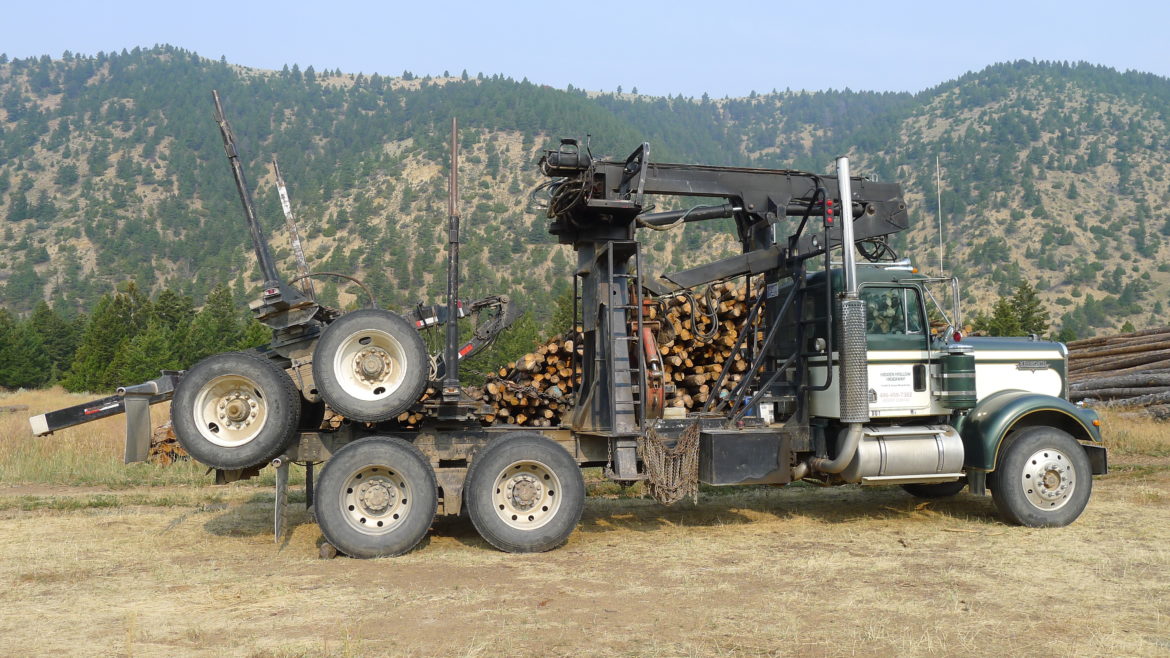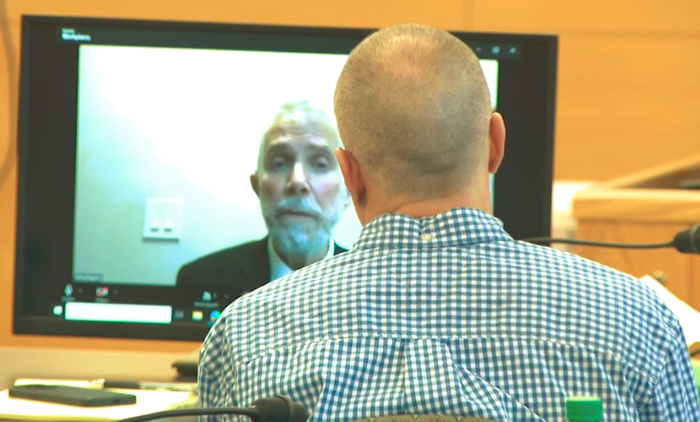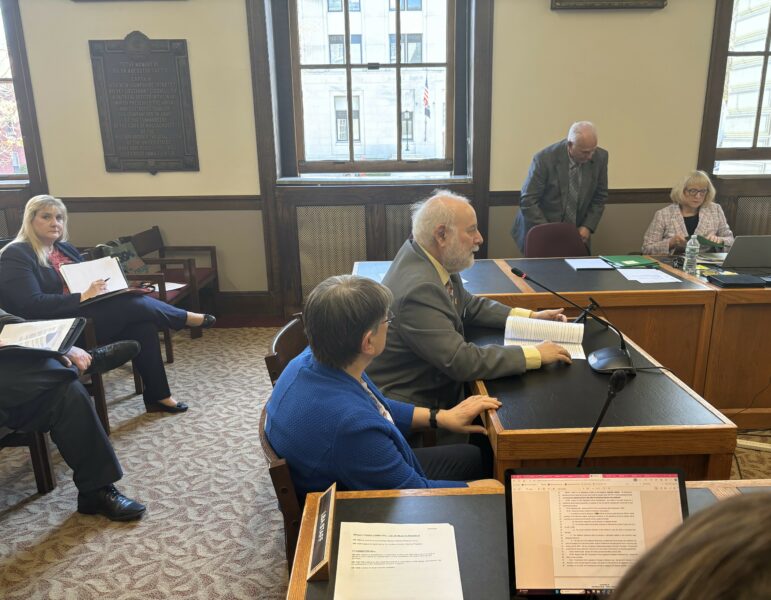Power to the People is a column by D. Maurice Kreis, New Hampshire’s Consumer Advocate. Kreis and his staff of four represent the interests of residential utility customers before the NH Public Utilities Commission and elsewhere. It is co-published by Manchester Ink Link and InDepthNH.org.
By D. Maurice Kreis, Power to the People
You could say that Diamond City, Montana is a ghost town – except the ghosts have no town to inhabit.
By 1870, Diamond City and the other nearby settlements in Confederate Gulch had yielded gold that would be worth, in today’s dollars, more than $2 billion. But the paroled confederate soldiers and other fortune seekers who extracted all that precious metal literally mined the town out from under itself.
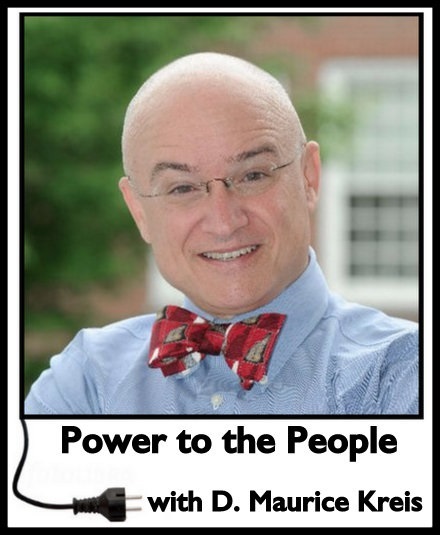 Today all that remains of Diamond City are rocky piles of spoils, numerous ravine-like “drifts” in which trees have long since replaced the prospectors who dug them, some dirt roads, and a cemetery.
Today all that remains of Diamond City are rocky piles of spoils, numerous ravine-like “drifts” in which trees have long since replaced the prospectors who dug them, some dirt roads, and a cemetery.
My kids and I rode past that cemetery several times on horseback on our recent vacation, since it is located on the cattle and guest ranch owned by our friend, Kelly Flynn.
Some readers may recognize Kelly as the subject of the December 25, 2017 edition of this column, which described his struggle with cancer and his farewell peroration in the Montana House of Representatives after eight years of service. I’m happy to report that Kelly has so far defied the odds of his terminal diagnosis and looks almost as healthy as the horses on his Hidden Hollow Hideaway Ranch.
We didn’t talk much about cancer on my recent visit. Our discussions tended to focus on politics, public service, and land stewardship – the latter a consuming passion for a man with deep family roots in the foothills of Montana’s Big Belt Range.
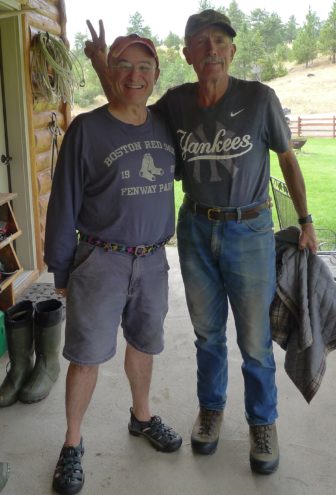
Courtesy
D. Maurice Kreis is pictured with Kelly Flynn on the front porch of Flynn’s ranch in Montana.
I found myself thinking about the clamorous public conversation occurring back home in New Hampshire as the Legislature prepares to vote September 13 on whether to override the Governor’s veto 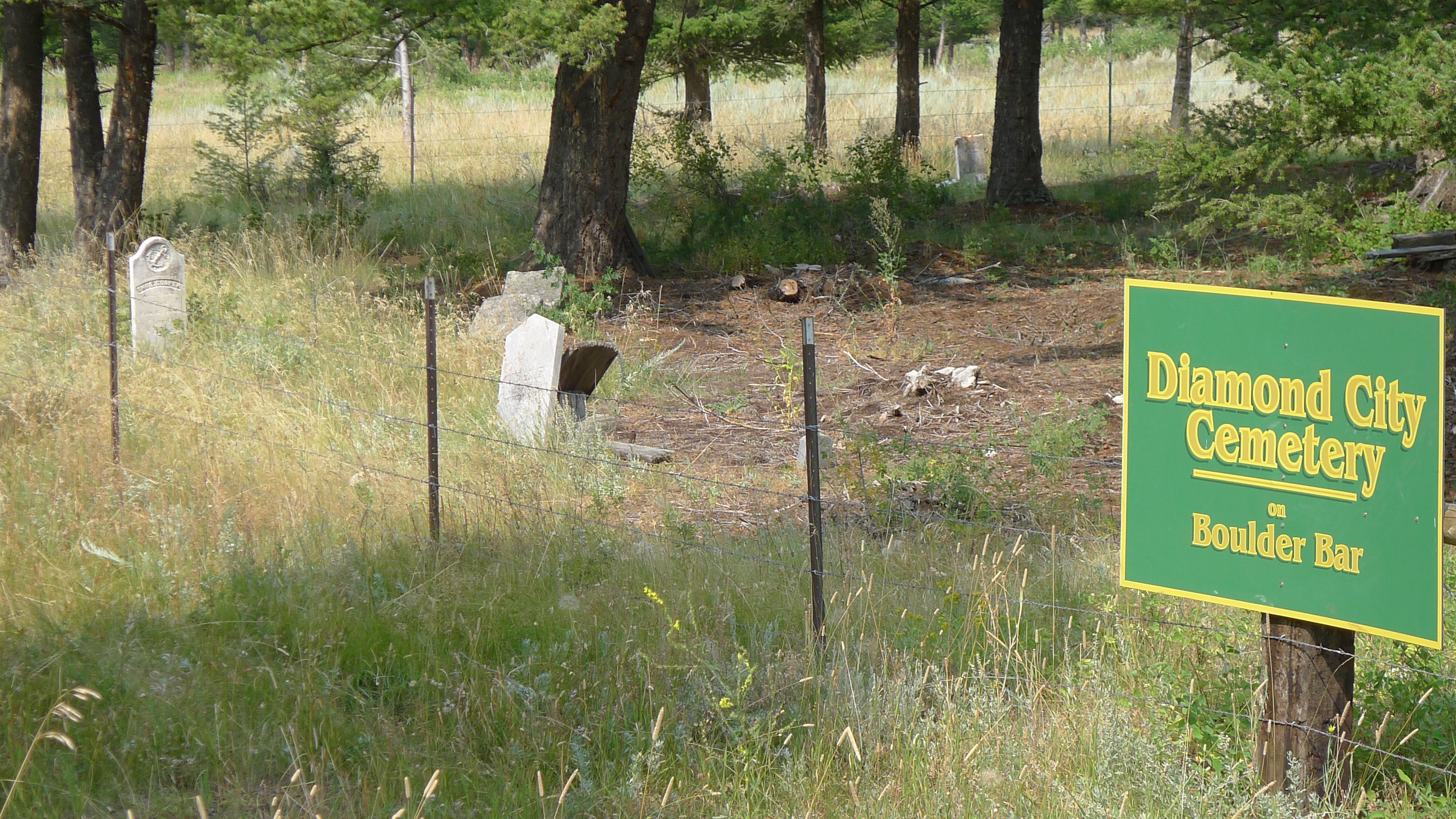 When I was last in Confederate Gulch three years ago, the Diamond City Cemetery was literally lost in an encroaching forest of sagebrush, scrub pine and other junk growth. Today the cemetery is once more a dignified historical landmark in the middle of selectively forested grassland. Some of what was harvested went to sawmills; much is being sold as firewood. The rest is piled up to be burned, on site, once there is snow on the ground and forest fire is not a danger.
When I was last in Confederate Gulch three years ago, the Diamond City Cemetery was literally lost in an encroaching forest of sagebrush, scrub pine and other junk growth. Today the cemetery is once more a dignified historical landmark in the middle of selectively forested grassland. Some of what was harvested went to sawmills; much is being sold as firewood. The rest is piled up to be burned, on site, once there is snow on the ground and forest fire is not a danger.
Yes, it is somewhat simplistic to compare the realities of forestry in southwestern Montana to those that prevail in New Hampshire. But, still, I could not stop myself from thinking that the Hidden Hollow Hideaway has no ratepayer-subsidized generators to which it can haul, and be paid for, its waste wood.
Instead, the ranch survives and maybe even thrives through the sustainable exploitation of every possible revenue stream – raising cattle, harvesting wood, welcoming trail riders in summertime and hunters in the fall.
Temporary stewards
According to Kelly, he and his family work their land because they are its “temporary stewards.” They wish to pass this legacy on to future generations. With the dusty and forlorn remains of Diamond City in their midst, they see almost every day what the opposite of stewardship looks like.
I believe the stewards of New Hampshire’s forests, who likewise yearn to pass their legacy on to future generations, will be creative and responsible should the subsidy for electricity produced from waste wood run out. There will be no Diamond City in the forests of the Granite State.
During my recent visit to the Hidden Hollow Hideaway, I also got talking with Kelly about the realities of being a state legislator. We agreed that even in today’s intense political climate, about 80 percent of the issues are resolved in a nonpartisan if not a bipartisan way. He stressed the importance, for a citizen legislature, of good information and institutional memory so as not to allow paid lobbyists to run the show.
That, too, made me think of the 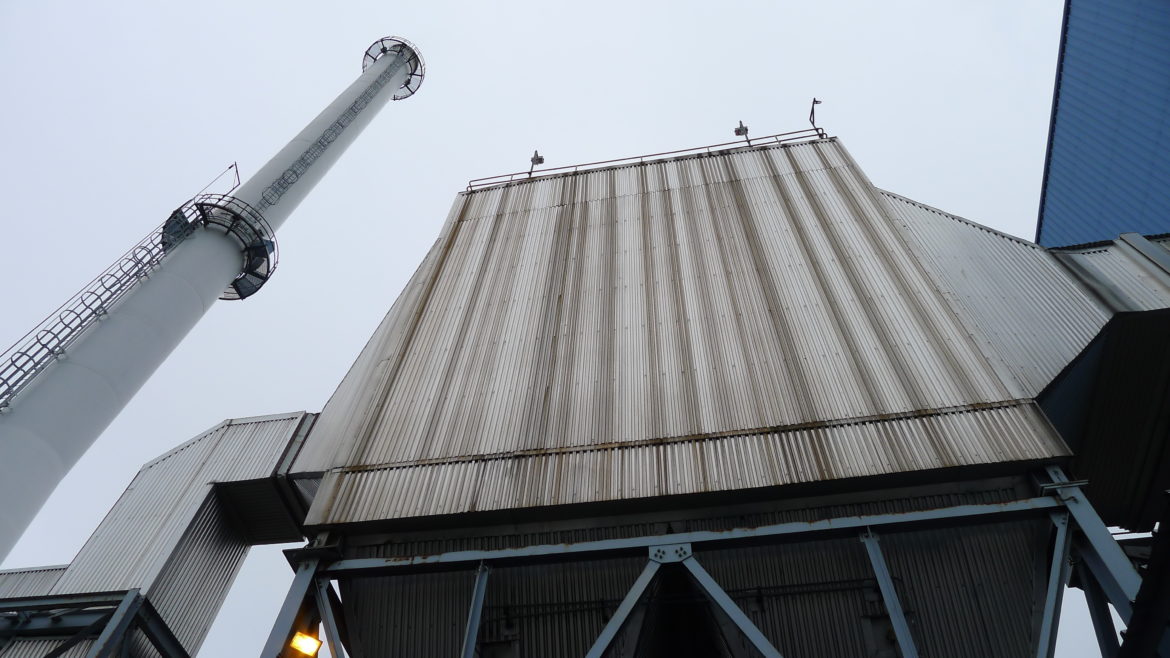 The Springfield Power biomass plant in Springfield, N.H[/caption]
The Springfield Power biomass plant in Springfield, N.H[/caption]
Others contend I was wrong to suggest that the energy purchases required by SB 365, pegged to the price of default energy service, could ruin the wholesale market for such service and thus drive up the price of electricity for those not using competitive suppliers. The theory is that Eversource can simply resell the energy and pass along any costs to customers via its stranded cost charge, without affecting default service.
Maybe. But it will still hang up the process of approving default service rates every six months. Bidders offering to provide default energy service to New Hampshire electric customers will therefore add a new risk premium to their bids, which will increase the price of default energy service.
Moreover, to the extent SB 365 simply creates a mechanism for passing the wood- and trash-burners’ costs through to customers, this looks a lot like a tax. Although the proceeds would be used for beneficent purposes, including such a cost on electric bills violates a sacred principle of utility regulation: the notion that anything included in customer bills must be “used and useful” in the provision of service to those customers.
Ten-thousand people once inhabited Montana’s Confederate Gulch, whose population is now zero. New Hampshire communities reliant on the forest products industry will not suffer the same fate. Sooner or later, we’ll get past ratepayer subsidies and invent a creative and flexible future for our state’s forests, as the temporary stewards of this great legacy.
Views expressed in columns and opinion pieces are those of the author and do not reflect those of InDepthNH.org.
SB 365: A great idea for NH Electric Consumers … in 1978
A holiday postcard from Montana
Opinion: Setting the Record Straight on Biomass
